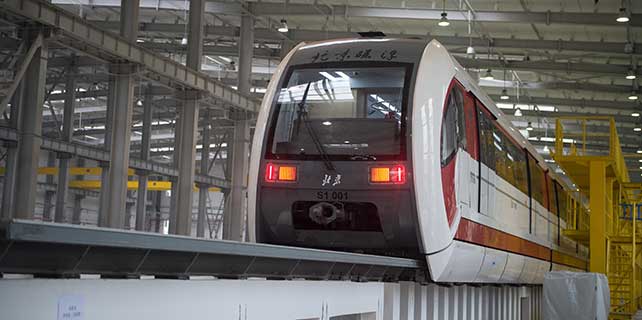Kingdom of Bicycles back on wheels
BEIJING - Bicycles have returned in force to the streets of Beijing.
The tens of thousands of bicycles belonging to startups Mobike and ofo Bicycle have arrived in the capital of what was once the "Land of Bicycles."
Scanning a QR code on the bike with a smartphone unlocks and activates it. At the end of your journey, you simply scan again and leave the bike wherever you stop. Mobikes have no fixed locations and are tracked by GPS. If you want a bike, you can easily find the nearest one through the Mobike app.
"This is a revolutionary move that makes bicycles more accessible," said Wu Hongyang, deputy director of the urban transportation studies center, China Academy of Transportation Sciences.
People do not like the unpredictable, said Wang Peng of Beijing Tsinghua Tongheng urban planning and design institute. "So the possibility of locating and reserving a bicycle beforehand is very important, especially when the user is on a bus or subway planning the next stage of the journey."
For Hu Weiwei, the former journalist who founded Mobike, the idea came out of traffic jams and pollution.
"Compared with existing public bicycle programs, we use technology to provide a better service," said Hu.
On-demand transportation is not particularly new in China, with car-hailing service Didi attempting to muscle conventional taxis out of the market. The gap in short-distance rides, between subway stations and homes or offices, was obviously going to be filled. "That was where we saw our niche," said Hu.
Finding a suitably robust bicycle that can take months, or even years, of punishment with minimal maintenance proved very difficult. The Mobike team visited every single bicycle maker in China, but to no avail, so eventually decided to build their own.
For ofo, whose name was conceived to resemble a bicycle (ofo), universities and colleges are its backyard. Its founders expanded coverage from a local service in their alma mater Peking University to providing over 20 million rides in 15 months. Mobike's numbers are just as astonishing. The two brands have risen quickly to compete with existing government bicycle programs and local authorities are welcoming Mobike and other new services.
Of course, now that a startup is able to keep the wheels rolling without spending the taxpayers' money, governments may withdraw their services.
In other parts of the world, stationless, on-demand bicycles are unheard of. Mobike is ready to expand in Singapore, and Ofo is considering other moves abroad.
"Mobike's idea is gaining popularity in China and the rest of the world," said Sun Shaobo of the School of Management, Shandong University.
"It's about low carbon, fewer cars, indigenous innovation and mobile internet. Plus, cycling is a good sport," said Sun. "How could a sensible government not love it?"









